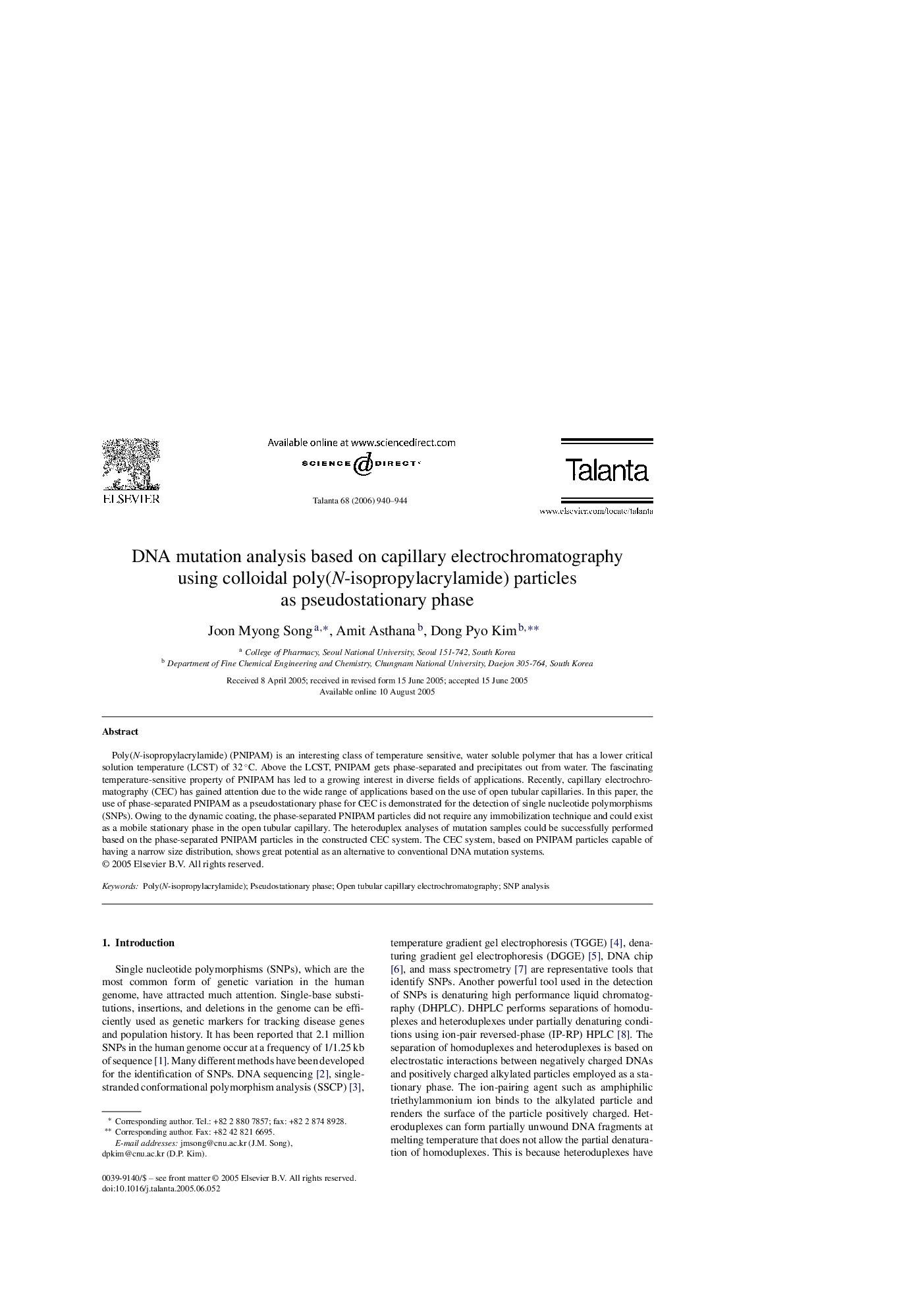| Article ID | Journal | Published Year | Pages | File Type |
|---|---|---|---|---|
| 1247420 | Talanta | 2006 | 5 Pages |
Poly(N-isopropylacrylamide) (PNIPAM) is an interesting class of temperature sensitive, water soluble polymer that has a lower critical solution temperature (LCST) of 32 °C. Above the LCST, PNIPAM gets phase-separated and precipitates out from water. The fascinating temperature-sensitive property of PNIPAM has led to a growing interest in diverse fields of applications. Recently, capillary electrochromatography (CEC) has gained attention due to the wide range of applications based on the use of open tubular capillaries. In this paper, the use of phase-separated PNIPAM as a pseudostationary phase for CEC is demonstrated for the detection of single nucleotide polymorphisms (SNPs). Owing to the dynamic coating, the phase-separated PNIPAM particles did not require any immobilization technique and could exist as a mobile stationary phase in the open tubular capillary. The heteroduplex analyses of mutation samples could be successfully performed based on the phase-separated PNIPAM particles in the constructed CEC system. The CEC system, based on PNIPAM particles capable of having a narrow size distribution, shows great potential as an alternative to conventional DNA mutation systems.
